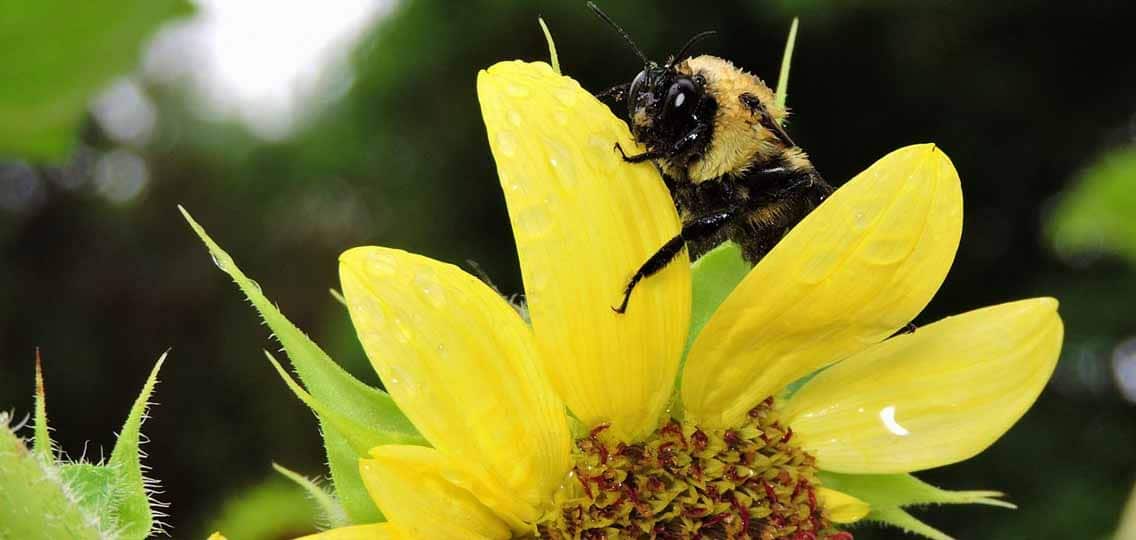More than 50 years ago, Rachel Carson’s Silent Spring alerted the world to the dangers of widespread pesticide use. Her book contributed to a ban on DDT, helped fuel the nascent environmental movement and led to the development of pesticide regulation.
Today, pesticides still pose a threat to human health and to our environment – and they still require careful study and stringent regulation. In recent years, mass bee die-offs have led to heightened concern over the use of one particular class of pesticide, known as neonicotinoids or neonics. Multiple studies have concluded that these neonic pesticides are toxic to bees. As pollinator species, bees play a crucial role in sustaining the environment and human health.
Unfortunately, Canada has been slow to respond to scientific and public concern over these pesticides and many others, even as many European countries have moved toward restricting and even banning their use.
We saw some progress last year when, in response to an Ecojustice lawsuit, Canada’s Pest Management Regulatory Agency agreed to conduct special reviews of 383 pesticide products containing 23 active ingredients. One such ingredient was difenoconazole, a fungicide used in several pesticide products that are toxic to bees.
Earlier this year, we learned that the Canadian government has purported to cancel its special review of difenoconazole products, even though difenoconazole has been prohibited for all uses in Norway since 1998 due to its persistence in soil and water, bioaccumulation in fish, and toxic effects on aquatic organisms.
That’s why we have spent the last month working with our clients David Suzuki Foundation and Équiterre to reactivate their lawsuit and challenge the Canadian government for shielding difenoconazole from review.
The law is clear: under the Pest Control Products Act, Canada is required to initiate a special review of any pesticide product containing ingredients that are banned for health or environmental reasons in any other member country in the Organisation for Economic Co-operation and Development. Here, we believe it is obvious that Norway has prohibited all uses of difenoconazole as a pesticide – indeed, Norwegian officials told Canada exactly that.
Scandalously, Canada appears to have ignored Norway’s explanation of its difenoconazole ban. Here’s how The Canadian Press reported it:
“Please note that this does not mean that we still have uses of difenoconazole allowed in Norway,” says a letter to Health Canada from Norwegian officials. “It is prohibited to sell, stock, store or use difenoconazole in Norway.”
Tessaro said Canada has ignored Norway’s interpretation of its own law.
“Here’s Norway telling Canada, ‘No, no, don’t be misguided here. We do not allow this pesticide to be used in this country.’ Canada turned around and said, ‘Thanks very much, Norway, but we’re going to disagree with how you interpret your own laws.'”
With our clients, we’re going back to court to ensure that Canada lives up to its responsibility to protect our health, the environment and the pollinators we all rely on. Can we count on you to help us spread the word?

